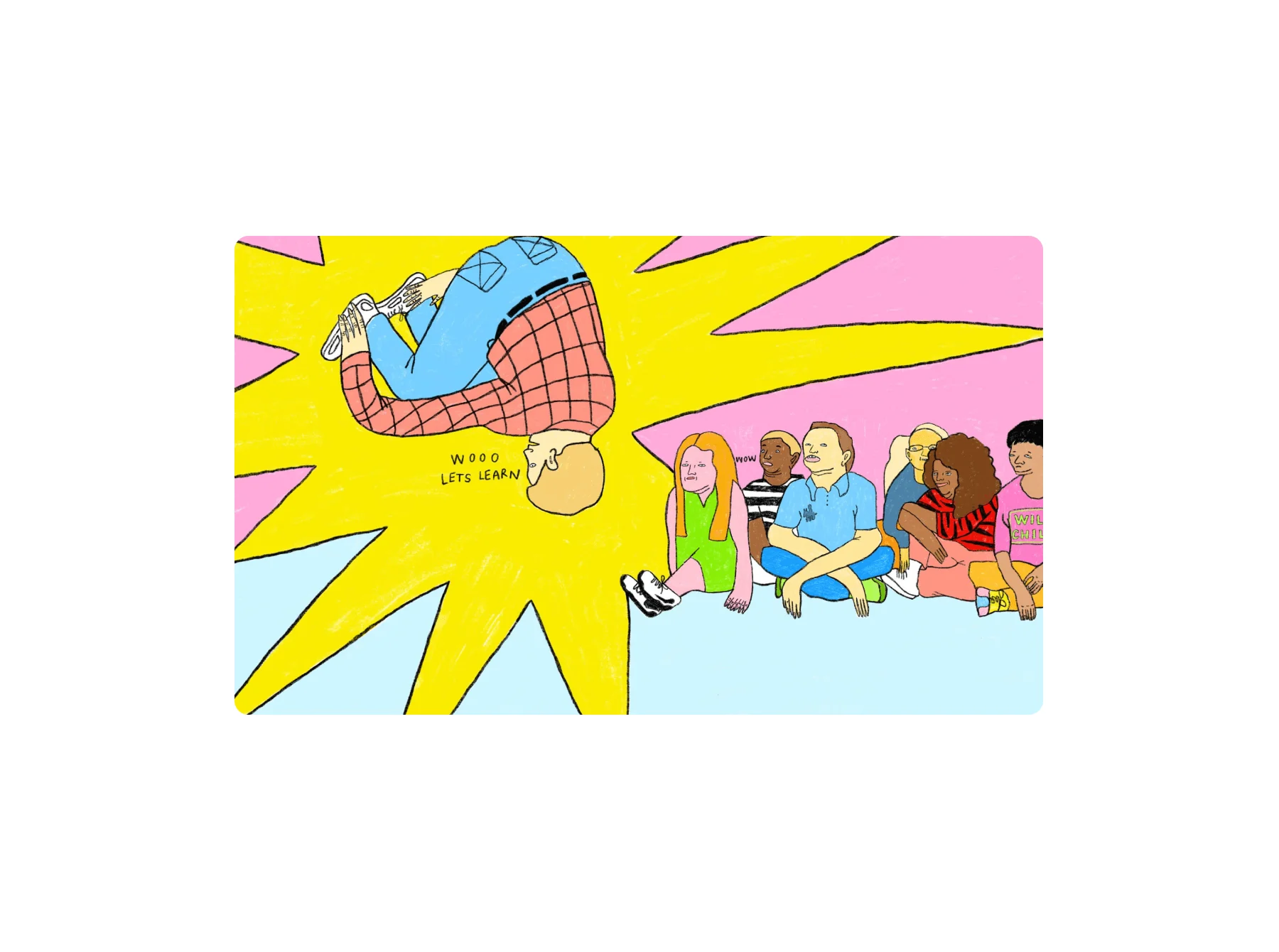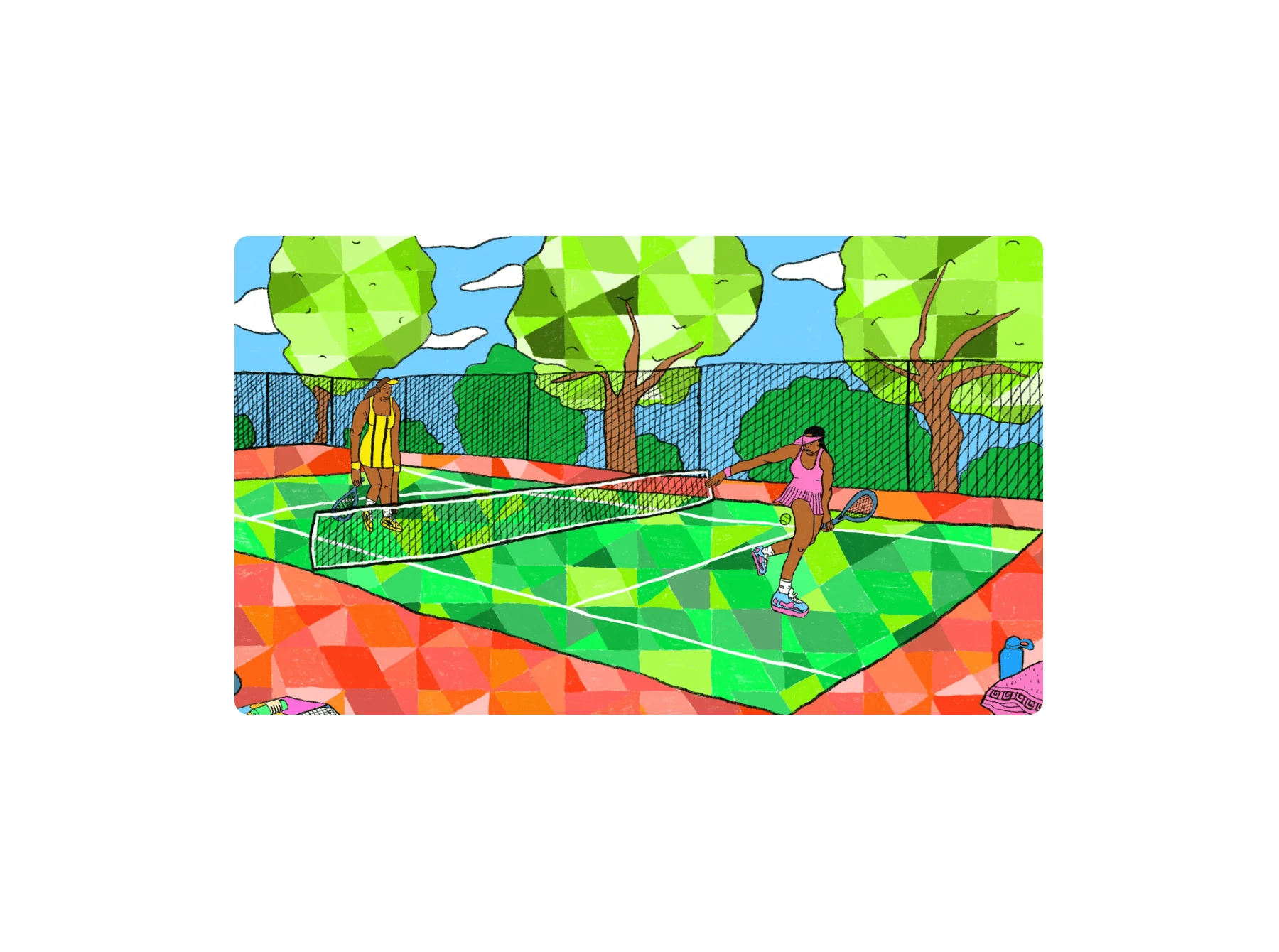
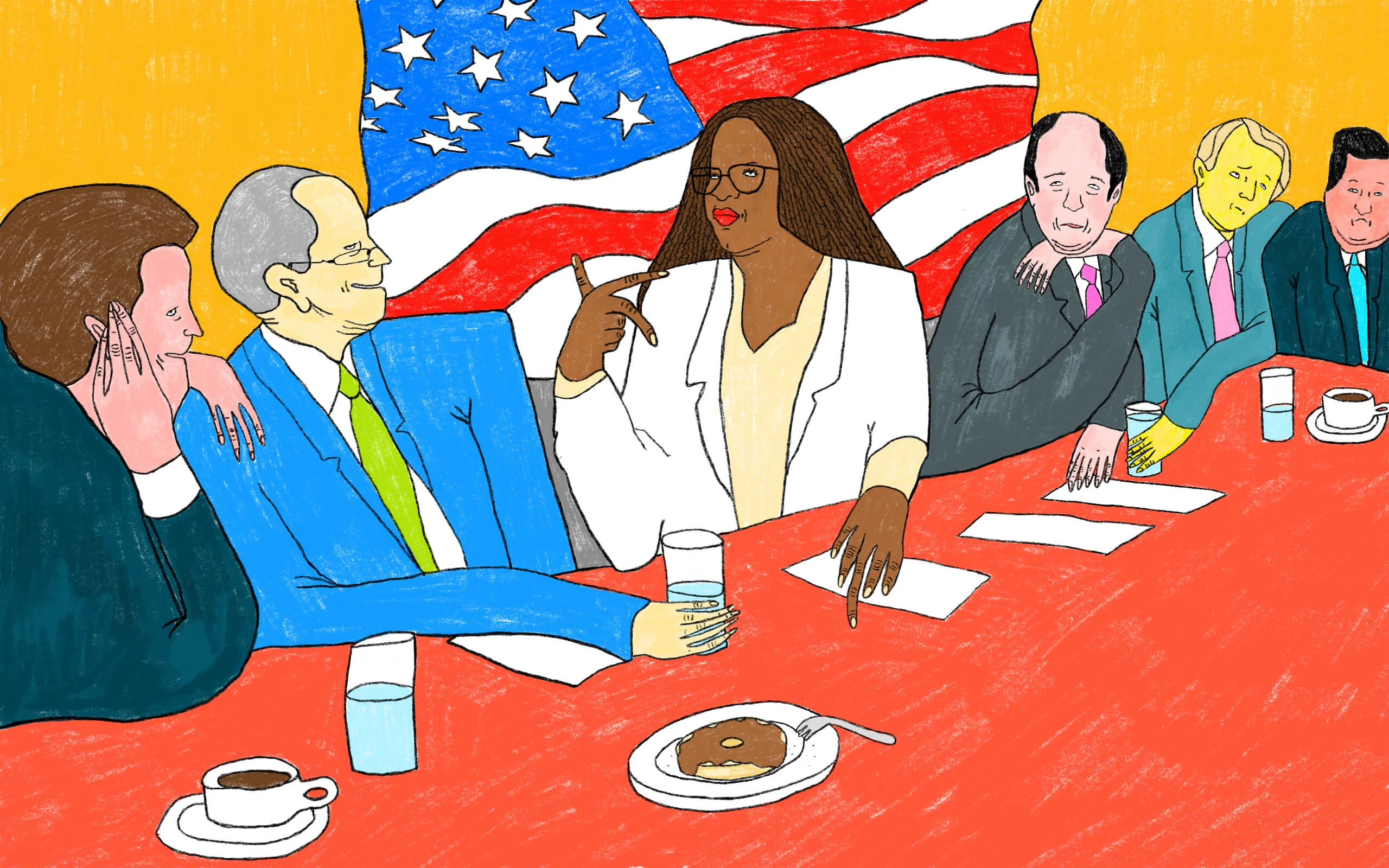
Creative minds take many forms. But when we talk about creativity, we often focus on a very narrow range of people. In this series, Cedar Pasori talks to undeniably creative people whose experiences and expertise can teach us to look at the world differently. See the whole set here.
Illustrations by Miranda Jill Millen.
In 2014, activist Brittany Packnett co-created an email blast called the Ferguson Protestor Newsletter. Its purpose was to organize and communicate about the protests happening in Ferguson, Missouri, after an unarmed black teenager, Michael Brown, was shot and killed by the police.
The Ferguson protests became, as Brittany points out, “the longest sustained direct action campaign since the Montgomery Bus Boycott .”
To support the newsletter, Brittany, now 33 and based in Washington, D.C., also co-founded WeTheProtestors.org, a website with resources for police accountability and eliminating racism on U.S. college campuses. It has Activist Toolkits for protest signs and chants, as well as maps for monitoring police violence across the nation.
“For nearly 400 days, we were marching, planning, meeting, disrupting, and shutting down not just Ferguson but all over St. Louis,” Brittany remembers. “People needed to understand that business could not just continue as usual. America needed to be reminded of its responsibility to engage.”
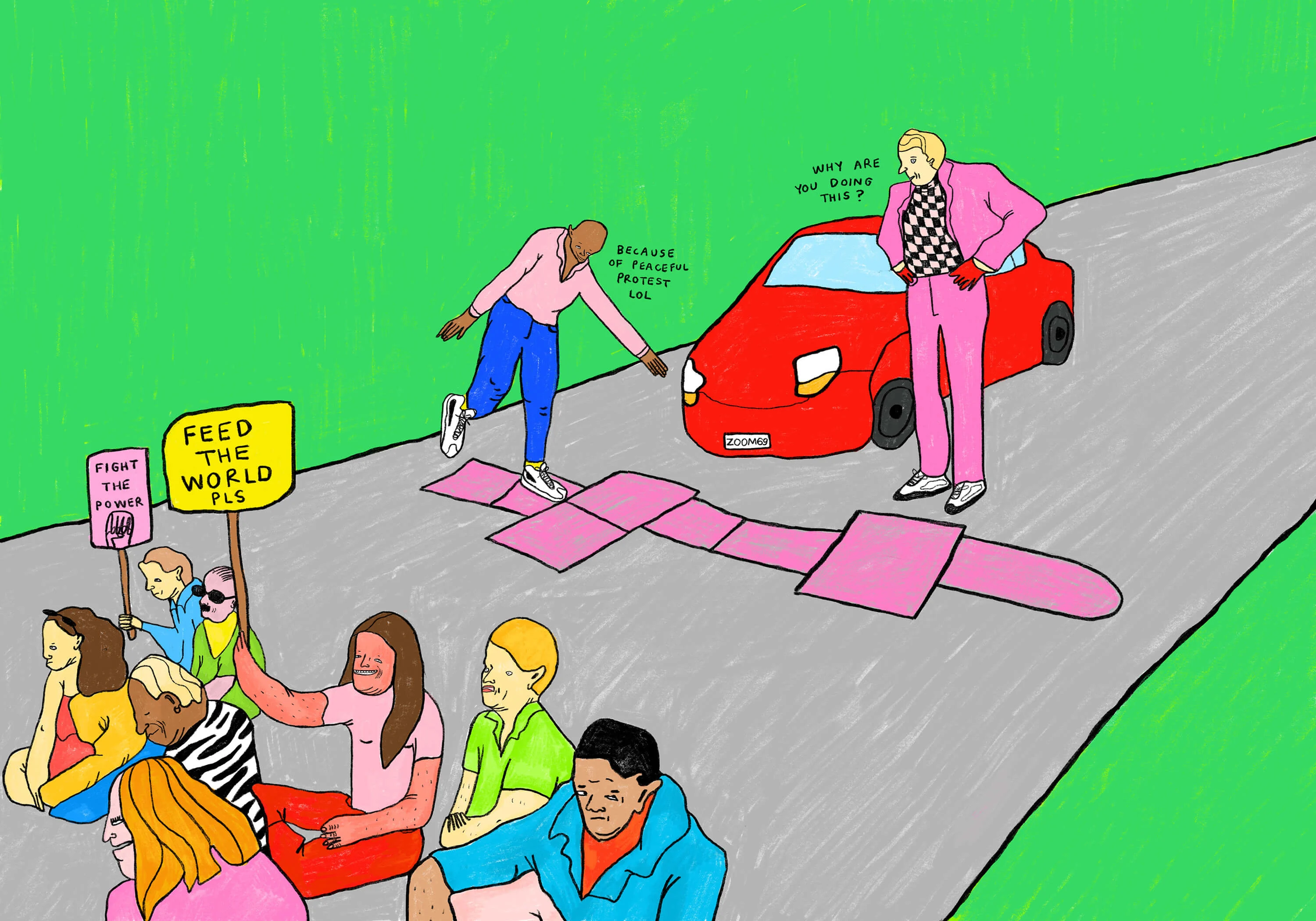
Thanks to the creative efforts of organizers like Brittany, the Ferguson protests demanded national attention. There was a banner drop at a St. Louis Rams football game that read “Black lives matter on and off the field.” Activists used the intermission of a St. Louis symphony to sing a song called, Requiem for Mike Brown. Protesters of all ages played games like hopscotch and double dutch to shut down streets.
“Creativity, in its rawest form, is essential to activism,” Brittany says. “That mindset is important for how we protest, write, create songs, all of that.”
Brittany was born in New Britain, Connecticut, and raised in St. Louis, Missouri. She attended her first rally when she was still in a stroller. Her parents, both teachers, showed her documentaries about Martin Luther King, Jr. and Frederick Douglass instead of Disney movies. They taught her activism was a responsibility, not a choice, and that it starts with education.
"Education is a necessary forefront of activism," Brittany explains. “My mother started the first office of multicultural affairs at the University of Missouri in St. Louis, so I learned what activism looks like in the classroom. She showed me what it means to empower young people by teaching their truth and building their confidence."
People needed to understand that business could not just continue as usual. America needed to be reminded of its responsibility to engage.
Brittany’s own activism is equally embedded in her day job as VP of Community Alliances at Teach For America (TFA), a program that hires young leaders to teach in under-served communities. An alumni of TFA herself, she worked her way up to a position where she could advocate for educational equity on a bigger platform.
“What I know from education is that it will take classroom teachers, policy makers, principals, activists, advocates, community leaders, scientists, creators, artists, and people with a lot of wealth who are willing to invest in innovation,” Brittany says. “It will take literally all of us to work on inequity.”
Education is a key part of Brittany’s digital tools and online presence. She routinely writes articles for popular women’s site The Cut, does a video column on Mic, and co-hosts the Pod Save The People podcast. She is constantly sharing information on her social media channels, which use her nickname, “mspackyetti” (given to her by her first TFA students in St. Louis).

She regularly collaborates and partners with fellow activists, developers and artists to create additional digital resources like Campaign Zero. Its detailed website has ten proposals for reducing police violence with downloadable graphics, interactive, state-by-state legislation tracking and contact forms for government representatives.
“People are leveraging websites and apps to support everything from ending police violence to slowing down summer learning loss ,” Brittany says. “You have those digital efforts combined with folks making IRL art for protests, like the Women's March, which represented multiple, intersectional communities in a historic way.”
The same year that she started the Ferguson Protestor Newsletter, she was appointed to President Barack Obama’s Ferguson Commission and Task Force on 21st Century Policing. The former US President mentioned her by name in his 2016 commencement speech at Howard University.
“She rolled up her sleeves and sat at the same table with big city police chiefs and prosecutors,” Obama said. “And because she did, she ended up shaping many of the recommendations of that task force. And those recommendations are now being adopted across the country –– changes that many of the protesters called for.”
Power at its best is love implementing the demands of justice.
Brittany isn’t content to get all the credit, though. "Lots of people don’t know the names of people who made sacrifices so Ferguson could happen," she says. “People like Mama Cat were feeding us. Kayla Reed was organizing us. Tara Tee did difficult planning for all of us."
All of them used creative thinking to start, strengthen and defend their protests. "Tef Poe literally walked in circles when police unconstitutionally told us that it was illegal to stand still for more than five seconds," Brittany remembers.
Supporting women is also central to her mission and is often the topic of her lectures. In 2017, she became a board member of Rise to Run, a movement helping young women who are running for office. She also founded a clothing line called Love + Power in 2017 — a message she abbreviates with a heart and a fist emoji — after teaching herself Adobe Illustrator.
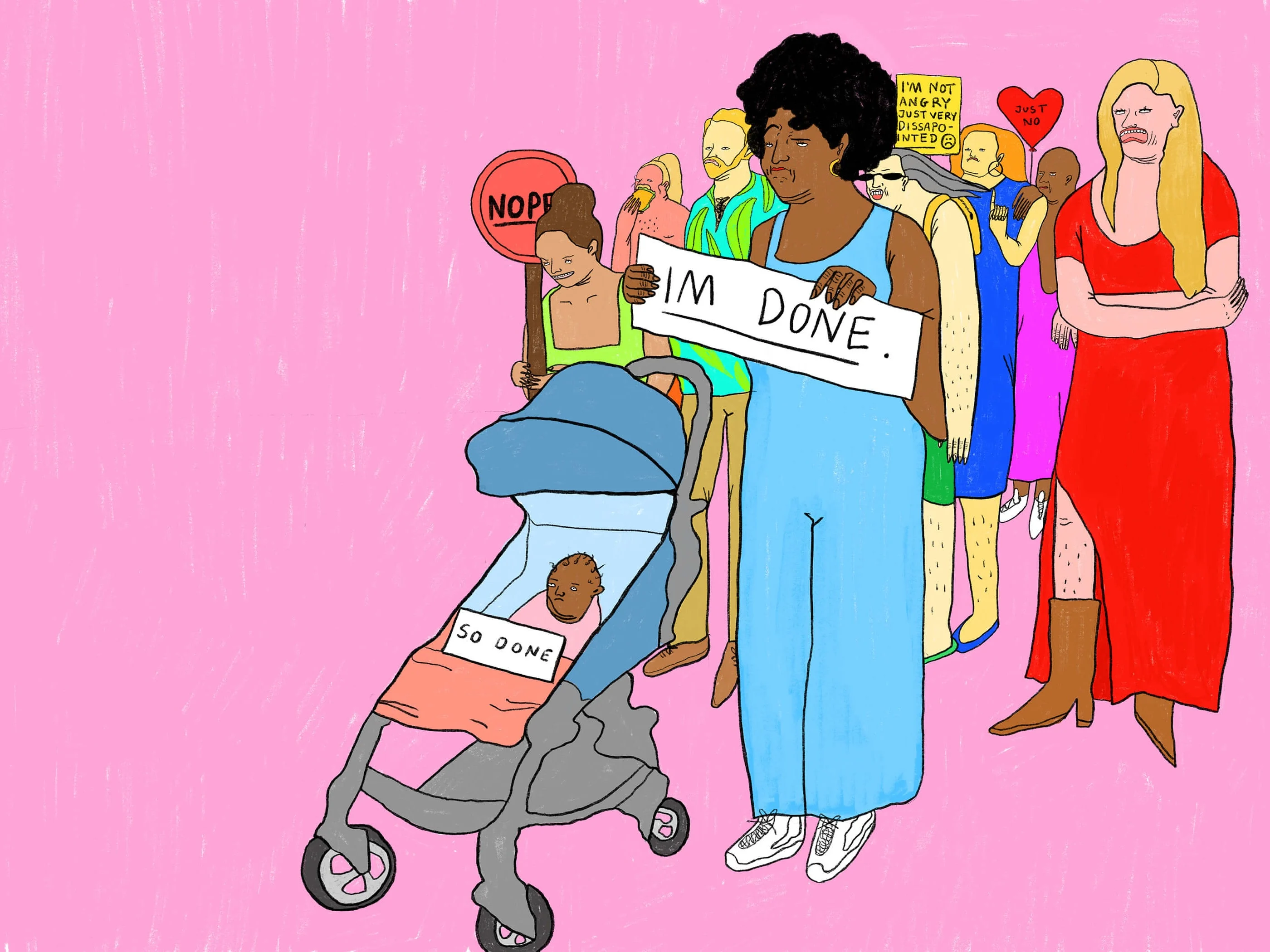
She sells T-shirts and sweatshirts that have messages of resistance and community, with all sales supporting organizations run by women of color. Its name comes from the Martin Luther King, Jr. quote, "Power at its best is love implementing the demands of justice.”
King is just one of the reference points she brings up in conversation, and many of them come from the creative world. In a contemporary sense, she brings up the activism of director - Ava DuVernay, and her Netflix documentary, 13th, about mass incarceration in America. She remembers the impact of actor, Jesse Williams, directing an episode of Grey’s Anatomy about police violence. She references poet Eve L. Ewing, writing about Dr. King’s stance on education in The Atlantic.
“In activism, we rely on the element of surprise,” she says. “We need people to expect the unexpected if we're going to be taken seriously and have our work be effective. Artists and creative people are critical to the work we do, because they can translate our mission in specific ways that touch hearts and provoke thinking.”
Let go of the desire to be popular when you’re doing the right thing.
Brittany’s message to those interested in activism is to start locally. “Look at how homelessness works in your community and who is impacted,” she says. “Figure out if there’s a living wage in your city and how you can advocate for that. Figure out if school funding is fairly allocated in your zip code. Read up on whether gentrification is happening in your city, so you can fight for fair housing. Sign petitions, create petitions, go to marches – and not just the ones that affect you.”
She also believes we all have a role in understanding how issues are connected to and typically inseparable from one another. “There's no way that we can think about healthcare for example, and not consider how it affects the LGBTQ community differently or how it affects the disabled community differently,” she says. “The internet gives us access to so much knowledge, so there's no excuse not to learn how to take an intersectional approach to this work.”
Her last piece of advice is perhaps the most important. “Let go of the desire to be popular when you’re doing the right thing. A lot of people have real amnesia about how unpopular Dr. King was. There will be sacrifice, you will lose relationships, folks will look at you funny and call you all kinds of names. The work is still more important than how popular you are.”


